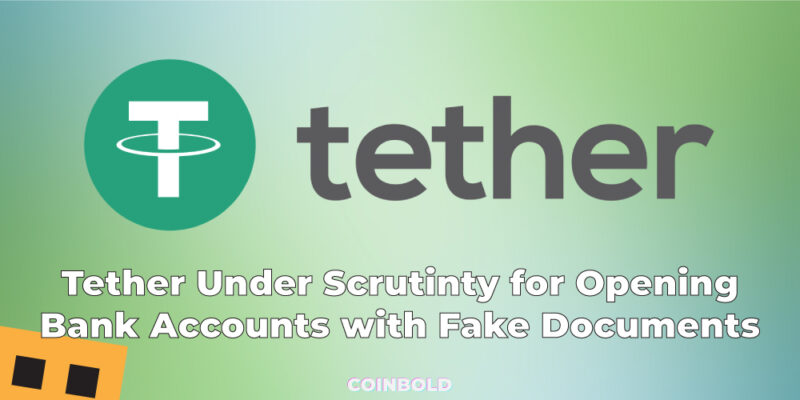Problem with stable coins There have been allegations that Tether used “shadowy middlemen, faked paperwork, and shell businesses” in 2018 in an effort to get its hands back on worldwide banks. As a result, the company is coming under examination.
According to a WSJ report, “Losing access to the banking system was an existential threat to their business,” Tether and its subsidiary’s sister arm Bitfinex said in a lawsuit.
According to an email sent by Stephen Moore, one of the owners of Tether Holdings Ltd., the report claims that a major Chinese trader of Tether attempted to “circumvent the banking system by providing fake sales invoices and contracts for each deposit and withdrawal.” This information comes from the report that claims the trader.
Moore objected to the use of faked sales invoices and contracts and said that he “would not want to defend any of the foregoing in a possible fraud/money laundering case.” Moore’s stance was successful.
It has been alleged that Tether and Bitfinex pretended to be other companies or persons in order to access their bank accounts.
According to the WSJ, the use of third parties did on occasion result in complications, such as the seizure of assets worth hundreds of millions of dollars and links to a recognized terrorist group.
As various Taiwanese accounts that Tether utilized were closed by Wells Fargo & Co. in March of 2017, the situation got more urgent for Tether as it relates to its efforts to maintain bank access.
There were allegedly efforts made by Tether and Bitfinex to create bank accounts in Turkey, Taiwan, New York, and other locations using fraudulent paperwork and shell businesses. These accounts would have been used to launder money.
Tether is reportedly being investigated by the Department of Justice (DoJ) in the United States, according to a source with knowledge of the issue.
Tether responded to WSJ’s accusations saying the report is “wholly inaccurate and misleading. Bitfinex and Tether have world-class compliance programs and adhere to applicable Anti-Money Laundering, Know Your Customer, and Counter-Terrorist Financing legal requirements.”
Tether CTO Paolo Ardoino tweeted “While I was on on stage I heard some clown honks, pretty sure was WSJ. As always ton of misinformation and inaccuracies. Poor guys, must be difficult be them but need better media.”
Tether proceeded by adding that they regularly support the Department of Justice and other law enforcement authorities, and they decried the WSJ piece as being a “unfair assault.”
Due to the nature of the cryptocurrency market, crypto companies have a difficult time working with banks all over the globe. Paradoxically, the companies severed their ties with Silvergate Bank when the latter’s stock price dropped as a direct consequence of the bank’s tardiness in submitting its annual 10k report.
Even Tether avoided Silvergate Bank, and the company’s chief technology officer confirmed that they had no exposure to the company. Companies like as Bitstamp, Microstrategy, Paxos, Galaxy Digital, and Coinbase, among others, have implemented such safeguards.
Compiled by Coinbold



